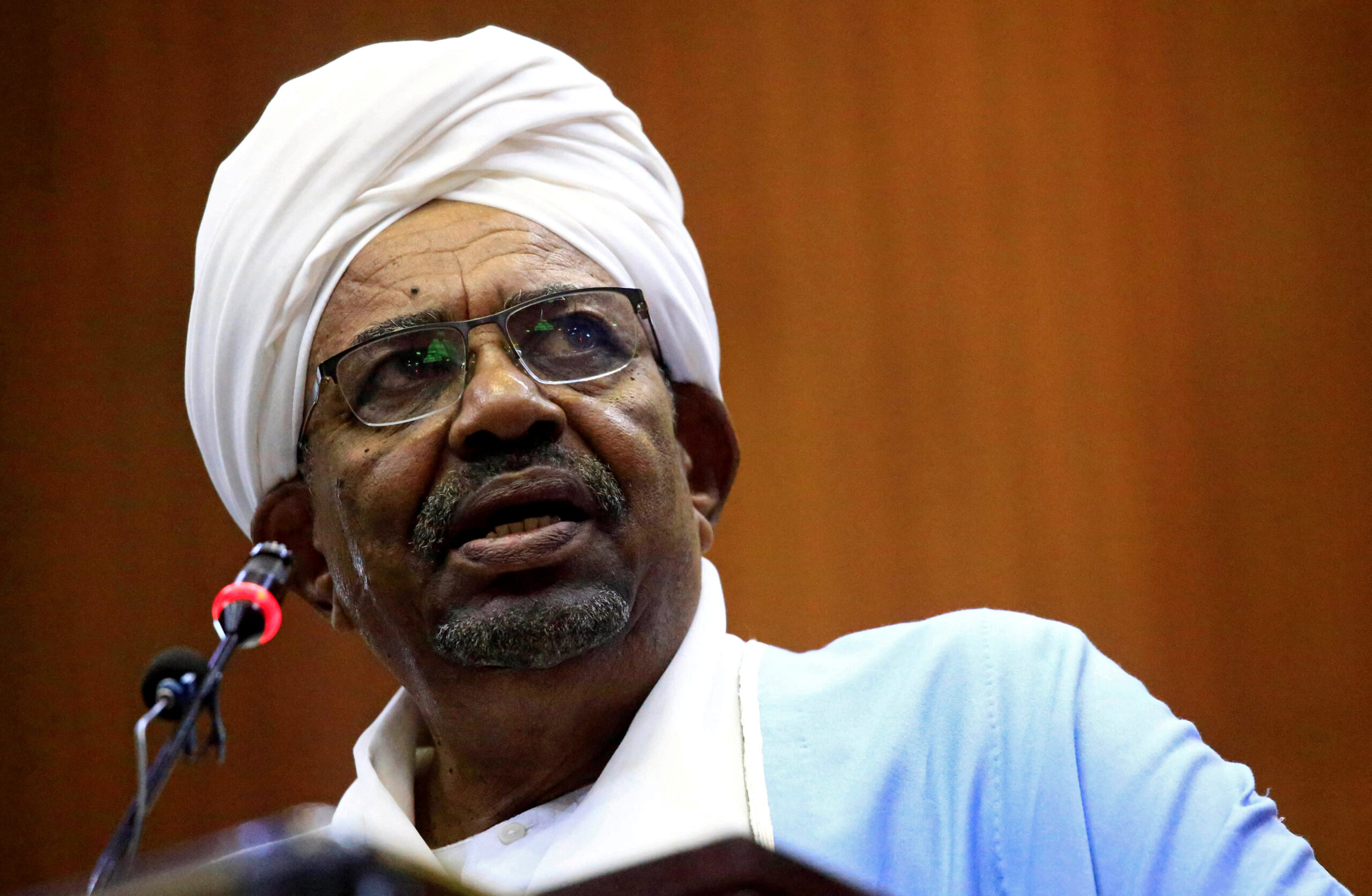
Sudan’s Al Bashir under spotlight after large sums of money found in home

Sudan’s public prosecutor has begun investigating ousted President Omar al-Bashir on charges of money laundering and possession of large sums of foreign currency without legal grounds, a judicial source said on Saturday.
The source said that military intelligence had searched Bashir’s home and found suitcases loaded with more than $351,000 and six million euros, as well as five million Sudanese pounds.
“The chief public prosecutor… ordered the (former) president detained and quickly questioned in preparation to put him on trial,” a judicial source told Reuters.
“The public prosecution will question the former president in Kobar prison,” the source added.
Relatives could not be immediately reached on Saturday for comment about the investigation.
Bashir, who is also being sought by the International Criminal Court over allegations of genocide in the country’s western Darfur region, was ousted on April 11 by the military following months of protests against his rule and had been held at a presidential residence.
Bashir’s family said this week that the former president had been moved to the high-security Kobar prison in Khartoum.
As president, Bashir often played up his humble beginnings as the child of a poor farming family in Hosh Bannaga, a small village consisting mainly of mud houses on the eastern bank of the Nile some 150 km (93 miles) north of Khartoum.
Bashir was ousted from power after almost three decades of rule, following mass popular protests demanding his resignation and an overhaul of Sudan’s current political system.
Meanwhile, there is high pressure on the military to hand over control to a civilian government, with protesters taking to the streets on Friday for a 14th day running.
The Sudanese Professionals Association (SPA), which has been driving the protests, said in a statement on Thursday that civilian council members would be named at a news conference at 17:00 GMT on Sunday outside the army complex.
“We are demanding that this civilian council, which will have representatives of the army, replace the military council,” Ahmed al-Rabia, a leader of the umbrella group of unions for doctors, engineers and teachers, told the AFP news agency.






